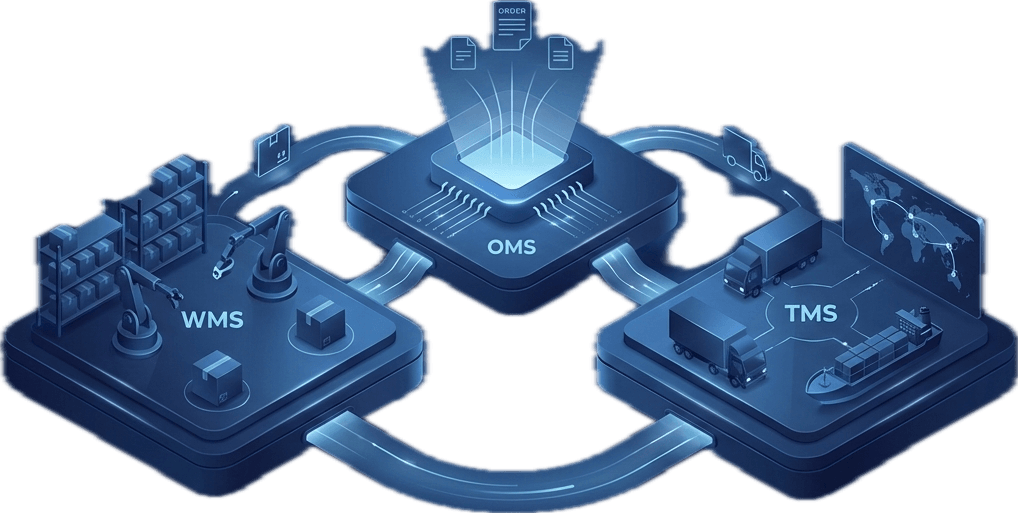Inventory Management for Components & Spare Parts: Industries Needing Thousands of Small Parts

Table of Contents
Precision in Every Part – Key Insights
- Managing small parts needs accuracy, speed, and control.
- Errors in tracking create delays, downtime, and lost revenue.
- A smart inventory management system for warehouse improves visibility and reduces risk.
- Omniful offers tools to improve part-level control and boost inventory turnover.
Introduction: Why Small Parts Demand Big Attention
Warehouses that store spare parts face a unique challenge. Unlike bulky items, small components are easy to misplace or miscount. Yet these items often play vital roles in repair, production, or servicing.
Industries like electronics, automotive, and mechanical maintenance rely on thousands of these parts. A single missing bolt can delay an entire job.
Managing them without the right tools leads to:
- Lost parts
- Excessive restocking
- Missed service timelines
- High costs
Omniful’s modern inventory management system helps businesses handle this complexity with accuracy and efficiency.
The Real Complexity Behind Component Inventory
Each item may be tiny, but the data behind it isn't. You must know:
- Where each part is stored
- How many are in stock
- When to reorder
- Which ones are nearing expiry
The complexity increases as product lines grow. What starts as 100 SKUs becomes 10,000. Without smart tools, your team loses time and accuracy.
For example, a company handling HVAC repairs may use dozens of fasteners and filters. Each part has its own demand cycle. That’s why a warehouse inventory management system must offer more than basic tracking.
Where Traditional Tools Fail
Manual logs, spreadsheets, and disconnected systems no longer work for high-volume parts.
They cause:
- Duplicate stock entries
- Over-ordering or under-ordering
- Difficult cycle counts
- Disconnected workflows
A system like Omniful’s Warehouse Management creates order from chaos. Every bin, shelf, and item is traceable with just a few clicks.
How Omniful Transforms Component Inventory Management
Let’s explore what a modern inventory solution must offer:
1. Real-Time Stock Tracking
Inventory must update automatically. As teams pick or return items, the system reflects it.
2. Bin-Level Mapping
Each item is linked to a specific location. This reduces time spent searching and increases picking speed.
3. Predictive Reordering
You can set limits for low-stock alerts. This prevents shortages and improves service readiness.
4. Detailed Item Profiles
Track expiry dates, manufacturing details, and batch information per item. This is crucial for compliance-heavy sectors.
5. Multi-Location Sync
Whether you run one site or ten, stock levels stay aligned.
Industries That Depend on Smart Inventory Tools
-
Automotive Service Networks: Parts like filters, spark plugs, and screws are used daily. Quick availability keeps service time short.
-
Consumer Electronics Repairs: Shops need resistors, connectors, and boards in stock. Delays impact customer experience.
-
Industrial Equipment Maintenance: Complex machinery needs rare parts, often stored in multiple locations. Misplacement delays operations.
A strong inventory system supports all of these scenarios, ensuring teams always have what they need.
Boosting Inventory Turnover Without Overstocking
Inventory turnover measures how quickly stock moves. For spare parts, balance is critical. Too much stock increases holding cost. Too little causes downtime.
Omniful’s solution improves turnover by:
- Tracking part demand patterns
- Suggesting reorder schedules
- Reducing dead stock
- Linking order management with supply chain decisions
With the right insights, you order smarter—not more.
Simplifying Returns and Faulty Parts
Returned or damaged parts need special handling. They must not re-enter circulation without checks.
Omniful’s Returns Management gives teams tools to:
- Isolate faulty parts
- Record reasons for return
- Reassign usable parts
- Create return-to-vendor workflows
Returns become a streamlined process, not a bottleneck.
Omniful’s Competitive Edge
What makes Omniful ideal for parts-heavy operations?
- Unified Dashboard: Track stock, orders, and returns in one place
- Live Stock Data: Avoid delays with real-time accuracy
- Barcode Scanning: Speed up picking and reduce human error
- Multi-Warehouse Management: Manage multiple sites under one system
- Integration Ready: Link with ERPs using Plug-and-Play Integrations
Together, these tools improve team productivity and operational control.
MENA-Based Examples of Smart Component Inventory
Electronics Parts Supplier – UAE
Problem: Stockouts of small items caused service delays. Inventory counts were inaccurate.
Solution: Omniful enabled bin tracking and low-stock alerts.
Impact: Service time improved 25%. Stock visibility reached 98% accuracy.
Mechanical Services Provider – Saudi Arabia
Problem: Technicians ordered parts without system visibility. Reorders were often late.
Solution: Omniful synced orders with warehouse data. Technicians checked live stock before requests.
Impact: Reduced unnecessary orders. Improved fulfilment time for repair tasks.
Practical Tips for Managing Spare Parts Inventory
-
Standardise Storage Units
Label shelves and bins clearly. Use barcodes or QR codes. -
Group Parts by Use
Keep fast-moving items closer to dispatch zones. -
Perform Weekly Mini-Audits
Cycle counts help catch errors before they become large. -
Use Analytics
Track slow movers. Reduce reorders on low-demand items. -
Enable Cross-Team Access
Let service teams check stock before raising orders.
Frequently Asked Questions
Q1. What makes component inventory difficult to manage?
High volume, small size, and unpredictable usage make tracking complex.
Q2. Can Omniful handle multi-location stock?
Yes. You can monitor inventory across all sites in real time.
Q3. What does a warehouse inventory management system include?
It includes location tracking, barcode scanning, reordering, and performance insights.
Q4. Is inventory turnover the same for all parts?
No. Critical parts move faster; rare parts may stay longer. Balance is key.
Q5. Can I connect Omniful to external software?
Yes. Use Plug-and-Play Integrations to link with other tools easily.























